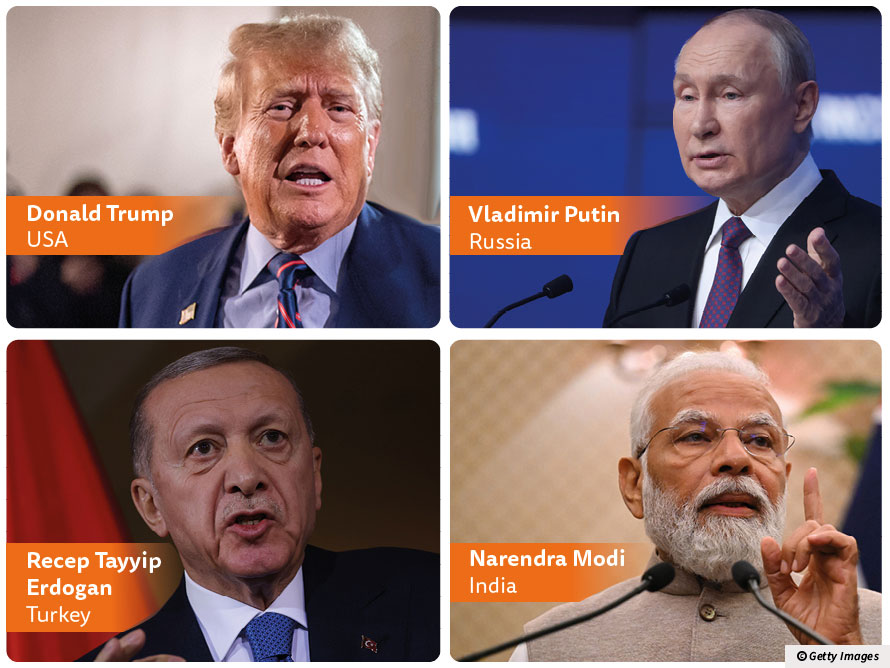Could there be another Hitler? The rise of populist leaders in Europe and the wider world has caused political commentators to warn of a return to the 1930s.
Demagogues’ delight: 2023 in politics
 The right stuff: Adding to the incumbents, populist politicians are triumphing in elections worldwide.
The right stuff: Adding to the incumbents, populist politicians are triumphing in elections worldwide. Glossary
Slovakia - A country in central Europe. Until 1993 it was part of Czechoslovakia.
Nationalists - The Nationalists were loyal to the Chinese ruler Chiang Kai-Shek. After being defeated by the communists in the civil war, Chiang remained ruler of Taiwan until his death in 1975.
Populists - Populism is a political approach whereby a politician tries to appeal to ordinary people who feel that they have been let down by elite groups.
Fascism - A political ideology that rose to power in 20th-Century Europe. It stressed militarism and order over personal freedom, and often divided society according to racial hierarchies.
Communist - An economic system entailing collective ownership of all means of production in contrast with capitalism, which holds that industry and businesses are controlled and run for profit by private owners rather than by the government.
